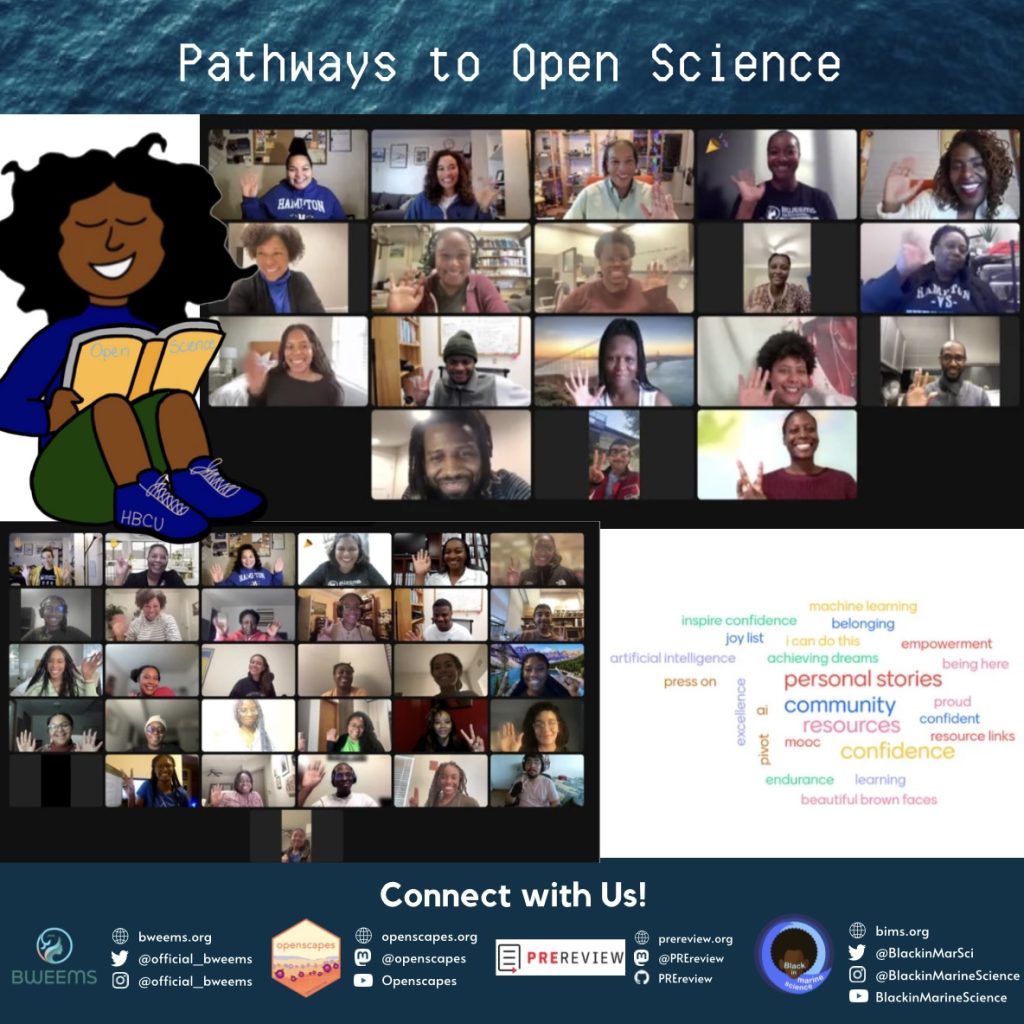Ileana Fenwick is a doctoral candidate in the department of earth, marine and environmental sciences. She strongly believes that the worst thing anyone can say is “no.”
In 2022, two years into her doctoral program under Janet Nye, she sent an email to Openscapes. The Openscapes movement supports scientific researchers working with data. She hoped to help Black environmental and marine researchers feel less isolated. She wanted to create community.
Openscapes said yes. And then Code for Science and Society said yes, granting more than $18,000 in support of her idea.
“You’re on the computer, you’re troubleshooting, you may not have someone to ask your questions to, or you don’t know where to ask your questions,” Fenwick said. “You want to learn new skills, but you’re intimidated by that. We’re pushing, pushing, pushing for big data and computational analysis. People hear those words and don’t know where to start.”
Developing a Program Based on Experience
 In 2024, 70 participants earned certificates through the Pathways to Open Science program she helped create. The remote, six-part program brings in researchers and speakers to talk about data-intensive science. It’s a highly collaborative effort, with partner support from Black in Marine Science, Black Women in Ecology, Evolution and Marine Science and seven Historically Black Colleges and Universities.
In 2024, 70 participants earned certificates through the Pathways to Open Science program she helped create. The remote, six-part program brings in researchers and speakers to talk about data-intensive science. It’s a highly collaborative effort, with partner support from Black in Marine Science, Black Women in Ecology, Evolution and Marine Science and seven Historically Black Colleges and Universities.
Fenwick has her own history with HBCUs. She said fate brought her to Hampton University in 2016.
“We call it ‘our home by the sea,’” Fenwick said. “I had the chance to go to this school that was in a beautiful place and do hands-on research in a community that really cared for its waterways.”
As an undergraduate, Fenwick found lifelong friends and mentors through three different research-intensive summer programs. Her experiences pointed her to a career in quantitative fisheries ecology. This field uses computers and coding to better understand the patterns and processes happening in the environment.
Since beginning her doctoral degree at Carolina, Fenwick has spent a lot of time with data. For the first chapter of her dissertation, she poured over NOAA data to understand how marine systems in the Northeast have changed over the past 50 years.
Seeing Researchers as People
Fenwick said Nye’s philosophy that researchers are first and foremost people propels the lab’s efforts forward. In 2023, the Nye lab collaborated to summarize conversations from a working group they participated in, which looked at the influence of warming on marine communities.
Fenwick firmly believes that improving data transparency, increasing inclusion in STEM fields, and creating community will help solve the climate puzzle.
She’s beginning to meet with the Pathways to Open Science team to plan its third iteration. She also challenges herself to share her data with others in the field, even though it’s intimidating.
“It’s empowering to know that what I’m putting out there can help someone else,” Fenwick said. “It can reduce the amount of time we’re wasting and help us find solutions that are relevant and useful to the people that need them.”
Listen to the full story on the Sustainable Carolina podcast.
